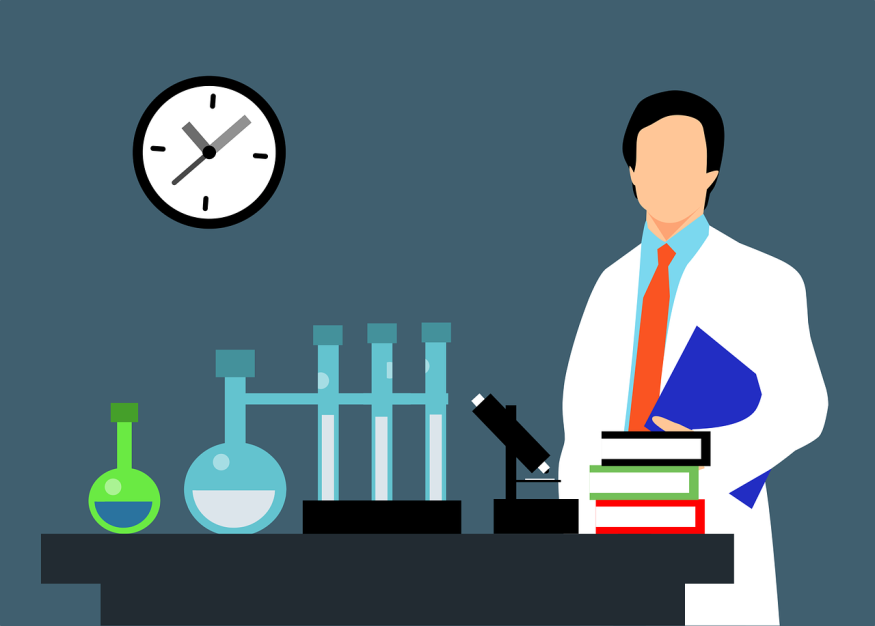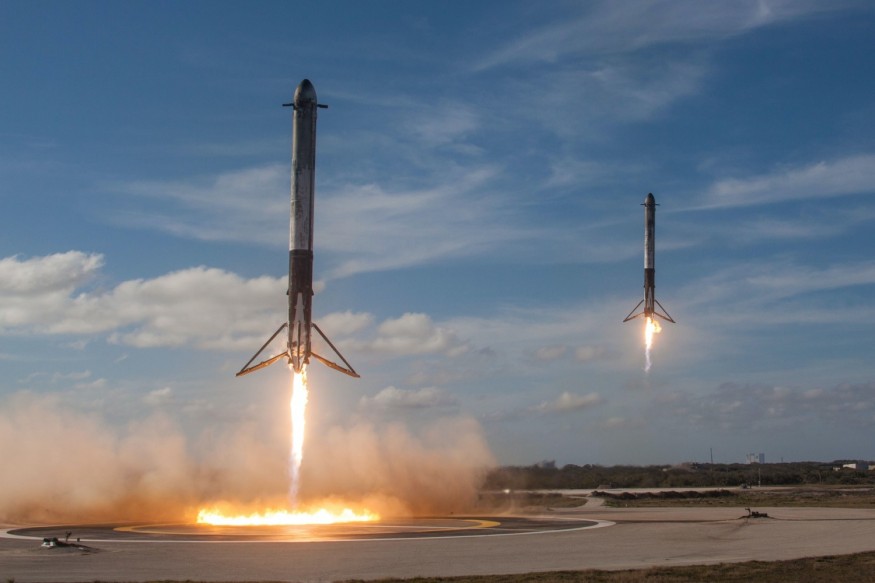
New scientific discoveries emerge almost every day. Millions of research papers are published annually on different topics ranging from food and physical activities to nuclei science, rocket technology, and gene editing. The volume of the papers is a testament to the extensive research work carried out by various global scientists, teams, and research institutes. The colossal volume makes it difficult to follow all innovations and discoveries made in a year. While some discoveries are often life-changing, others are insignificant. Here are some of the most fascinating and mind-blowing scientific discoveries of all time.
Famous scientists and their discoveries: 11 Inventions saving humanity and improving lives
1. Electricity
Electricity remains one of humanity's most significant scientific discoveries. The electric grid that supplies power to households and industries and the modern electric generators with high output voltages have emerged from an ingenious invention by Michael Faraday. In 1821, Faraday discovered the relationship between an electric current and a magnetic field, which led to the development of the first electric motors. Faraday observed that an electrically charged wire rotated when placed next to a single magnetic pole. His experiments became the forerunner to the current electric generators and grid. Electric motors run most machines in the world today, including cars, planes, household equipment, and medical devices, among others, which have become critical to humanity. A world without electricity is almost unimaginable.
2. Penicillin
Sir Alexander Fleming discovered penicillin in his lab in 1928. He developed it by growing fungi and mold and proved an effective remedy for treating bacterial diseases and infections. Even though mold was used by ancient civilizations such as the Greeks and Egyptians to cure ailments, Fleming's accidental discovery has been acknowledged as the foundation of antibiotics. Since their invention, antibiotics have saved millions of lives from bacterial diseases such as tuberculosis, cholera, anthrax, tetanus, leptospirosis, and pneumonia. Cholera alone has devastated communities infecting and killing millions of people. For instance, in 2017, WHO declared the cholera outbreak in Haiti, "The worst in recent history with over 820,000 cases and nearly 10,000 deaths." Without antibiotics, simple diseases and infections such as strep throat, ear infection, whooping cough, and urinary tract infection would be deadly, if not deadlier.
3. Internet
The internet is, perhaps, the most important technology of our time. Internet protocols were developed by Bob Kahn and Vinton Cerf, two revolutionary computer scientists who were ahead of their time. Over the years, the internet has become the most critical platform for interaction, knowledge exchange, and information sharing. It has connected researchers from all corners of the world, improving collaboration and making it easier to share findings. The internet accounts for almost half of all business transactions completed globally. With over two-thirds of the global population online, businesses have been forced to establish online spaces for interacting with their customers and prospects. The major retailers such as Amazon and Alibaba are online. All governments, their departments, and agencies are online. Leading institutions for research and development, such as Harvard University, Yale University, National Institutes of Health, and Max Planck Society, among others, use the internet actively in their recruitment, knowledge exchange, research, knowledge sharing, and public interactions. Creative writing services, such as Domypapers.com, work purely because students can access them anywhere anytime. The internet has even become more critical with the advent of social media. Websites and apps such as Facebook, Twitter, YouTube, and TikTok, which use internet protocols to connect people, have become so addictive, especially with the young generation, driving internet traffic extremely high.
4. Telephone
Alexander Graham Bell is widely accredited as the inventor of the telephone. His invention, patented in 1875, completely revolutionized our ways of communication. Initially known as the 'acoustic telegraph,' the invention made it possible for people to communicate over long distances. There have been raging debates about the invention, with some sources claiming that Bell did not deserve all the credits for it. Bell's invention, it is argued, was based on earlier innovations by German inventor Philipp Reis and Italian engineer Antonio Meucci that turned sound into electric signals. Moreover, Reis and Meucci's inventions came over a decade before Bell's acoustic telegraph. In 2002, the US House of Representatives reviewed the claims and concluded that Bell's invention could not have worked if he did not use parts of Meucci's work. History and controversies aside, the telephone has become central to our lives, replacing the need for unnecessary long-distance travel for face-to-face communication, all the while maintaining reciprocity. The new smartphones serve multiple purposes, including entertainment, communication, and completing simple assignments.

5. Medical imaging
Scientific discoveries with immediate impacts are few and far between. Some inventions take years to be adopted and used by people. However, Wilhelm Roentgen's discovery of X-rays immediately impacted medicine and physics, completely revolutionizing the sectors. Medical imaging uses x-rays to conduct essential clinical tests and analyses on patients. The process allows medics to see beyond the skin and bones, revealing diseases that may be hidden from sight. Simple x-rays, ultrasounds, and MRIs have made medical procedures less invasive and improved the quality of diagnosis and treatment services. The latest developments in medical imaging have made it easier for parents to know their babies' genders before birth and the possibility of the child developing major health complications.

6. Vaccines
The history of vaccinology can be retraced to 1796, when Edward Jenner developed and tried the first vaccine against cowpox. The vaccine showed immunity against smallpox, leading to the development of the smallpox vaccine in 1798. Centuries later, Edward Jenner's method of introducing weakened disease-causing organisms into the body to cause immunity is still widely used to fight viruses and other stubborn pathogens. Viruses threatening to annihilate humanity have emerged over the years, but vaccines have shielded humans. For example, without vaccines, polio could have disabled millions of people. According to the CDC, Ebola infected over 28,600 people in 2016, resulting in at least 11,325 deaths. Since the start of the HIV pandemic, it is estimated that 27.2 - 47.8 million people have died from its related illnesses and complications. In 2016, Ervebo, a vaccine for fighting Ebola, was developed, saving thousands of lives during the 2017 and 2018 outbreaks. Trials for the mRNA HIV jab are also ongoing. The vaccine could save millions of lives and vast sums of money spent on ARVs annually.
7. Gene Editing
Since the discovery of DNA, scientists have invested millions of dollars and uncountable hours of research into understanding how they affect the functions of organisms. Recent breakthroughs in the artificial modification of DNA have shown that gene editing has limitless possibilities. First tried in 1990 on a girl with ADA deficiency, gene editing was found to hold the answers to future treatment of complex medical conditions. Doctors can target genes that make humans susceptible to some diseases or incapable of defending themselves and replace them with new genetic materials that can fend off specific infections. Pioneering works in agriculture are exploring how gene editing can be used to increase animal and plant productivity. For example, making cattle have more muscle mass, increasing crops' drought resistance, and making plants and animals disease resistant. New science discoveries may expand the application of gene editing significantly. Ideas like having super humans developed by selecting the best genes and fighting obesity have also been floated.
8. Artificial Intelligence (AI)
AI has been defined as the simulation of human intelligence and thought patterns and processes by computers and computer-based machines. Since the release of Terminator, most humans have lived with the fear that machines may one day take over the world. The new movies and series that have followed the trend, e.g., Person of Interest, have only compounded the fear. Despite the concern, artificial intelligence is a great blessing to humanity. It has enabled automation and re-defined tasks that humans may consider monotonous. Advances in computer programming have improved AI, ensuring that their predictions and work are more precise. Today, AI is used on a massive scale to gather intelligence on terrorism and other crimes, run semi-automated cars like Tesla, analyze stock exchange data, push targeted marketing messages and adverts, and cyber security, among other areas. Elon Musk is famous for championing self-driving cars to curb road accidents. Humans are prone to mistakes. Most road accidents have been attributed to human error, making the dream of autonomous driving a valid one.
9. Deoxyribonucleic Acid - DNA
Since the discovery of DNA in the 1980s by Johann Friedrich Miescher, a Swiss chemist, humans have made significant strides in medicine and other fields. For example, archeologists and anthropologists have been using DNA information to build human history, inter-breeding, and other past interactions. Some organizations are now helping people retrace their roots or ancestry through DNA profiling. The latest developments also reveal that DNA predicts people's susceptibility to mental illnesses and other conditions such as obesity. The intelligence and security sectors are among the top beneficiaries of DNA information. DNA helps security agencies and personnel to identify criminals using biological evidence left on crime scenes. Several cases that went cold have been solved using DNA evidence. On the other hand, some wrongfully convicted people have been exonerated through DNA evidence. Most importantly, without the discovery of DNA, critical studies on genome mapping and sequencing, which hold great promise to humanity, wouldn't be ongoing.
10. Reusable rockets
Rockets remain humanity's only option for space and interstellar travel. However, their high production costs limit humanity's space travel. On average, NASA spends $152 million per launch. Most of the money is spent on rocket development. Elon Musk set out to develop reusable rockets to make space and interstellar travel more affordable. While the objective was considered untenable and logic-defying, he has succeeded in making rockets that are semi-reusable, lowering the cost of payload transfer from $152 to $62 million. But the job is not done. Elon estimates that payload transfer with fully reusable rockets will cost less than $2 million, "1.3 percent of what NASA is currently paying for the same task." Full reusability has enabled companies to launch satellites into orbit, improving the delivery of services such as internet connectivity, mapping, and geo-location. However, the main objective is to reach Mass, writing history in the process. According to the latest developments by SpaceX, going to Mass could be a reality in our lifetime.

11. Evolution
Charles Darwin put forward the Evolution Theory in 1859 in the book 'On the Origin of Species.' After observing various organisms and fossils in the Galapagos, Darwin realized that they had evolved from a shared tree and developed in their unique ways. He concluded that all organisms evolved due to environmental changes. Organisms incapable of adaptation perished. The process of natural selection commonly referred to as survival for the fittest ensured that only the microorganisms that were best suited for their environments survived. Darwin's work provided vital answers to humanity and opened new fields of study, specifically archeology and anthropology. Most importantly, 'On the Origin of Species' has helped humans to understand how life on earth began and evolved from tiny living creatures to big ones like mammoths, elephants, and humans over millions of years. Darwin's service to humanity not only provided answers but also raised questions that have furthered the understanding of human origins.
A bonus!
A discussion of famous scientists and their discoveries cannot be complete without mentioning Otto Rohwedder, primarily for fun. You've heard of the phrase, "The best thing since sliced bread," right? The common phrase is used to hype new products based on their usability and practicality. It was first used in an advertisement by Continental Baking Company that promoted pre-sliced 'wonder bread.' It is no exaggeration, the company did its homework and delivered beyond expectation. Sliced bread is magical, and it would be criminal not to mention it here.
Biography
This article was written by Javan Dupree, a professional technology writer and tutor. Mr. Dupree was a full-time lecturer at Southern University College for 14 years before taking early retirement. He has published several articles and papers in technology and development planning. Today, he's tutoring students at different levels. He writes blog posts about his travels and enjoys some fishing in his free time.












